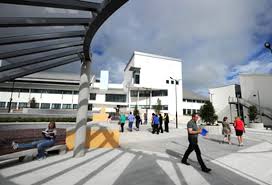The Construction Common Entry Level 7 degree programme is for students interested in both construction management and quantity surveying as a career, but who may be unsure of which discipline to follow. This common entry degree programme gives students the opportunity to see both disciplines first hand. Through the various modules on offer, and interaction with the lecturers, student can decide which discipline suits them best.
An added bonus is that on successful completion of year 2, students will be awarded a Higher Certificate in Science in Construction.
Year 3: students who successfully complete year 1 and year 2 may choose either the Bachelor of Science in Construction Management or the Bachelor of Science in Quantity Surveying.
Construction management deals with the organisation and management of a construction project. The construction manager monitors the progress and quality of the work on site, supervising and co-ordinating subcontractors and specialist suppliers. A number of different terms are used to describe the construction management role – these include project manager, contracts manager and building manager.
The construction manager has overall control of the progression of the project and is responsible for ensuring that the required personnel, materials and equipment are available in the correct sequence and at the appropriate time. They must also ensure that all health and safety regulations are met.
Quantity surveying aims to provide value for money through the efficient cost management of the construction process. The objective of quantity surveying is to control cost, limit risk and add value to a project.
The quantity surveyor chooses the most appropriate procurement method, prepares the tendering documents, advises on the selection of contractors, checks the progress of the work on site and calculates payments due to contractors. The quantity surveyor thus ensures that the design and construction of the project delivers value for the client.
The aim of the work placement is to introduce the student to structured employment in a relevant work sector and to develop the student’s understanding of the organisation, its procedures and technology.

